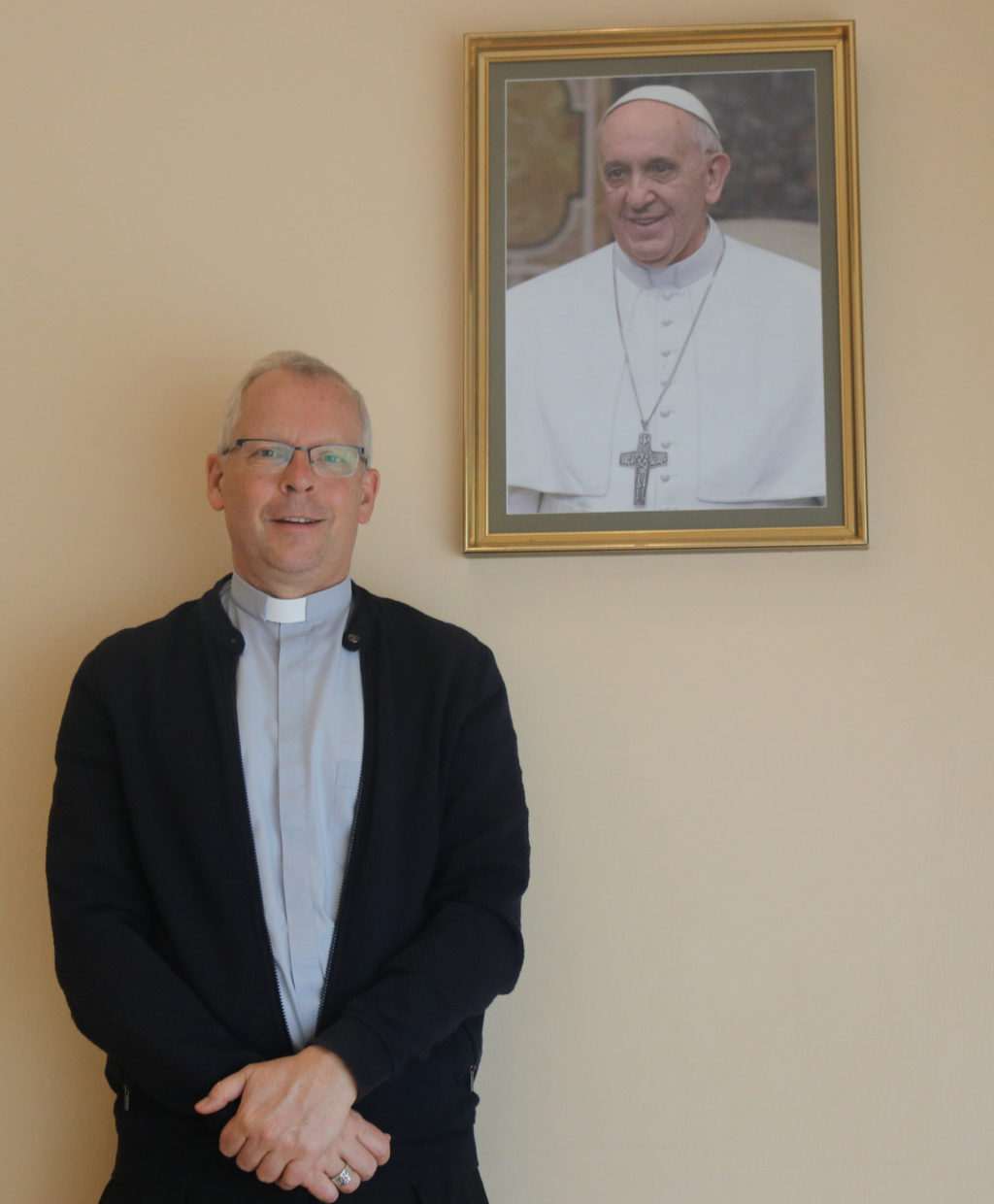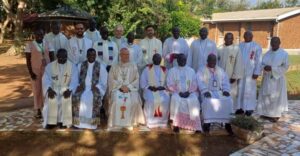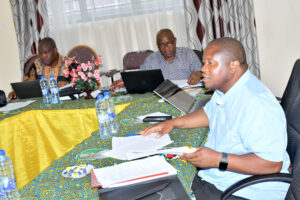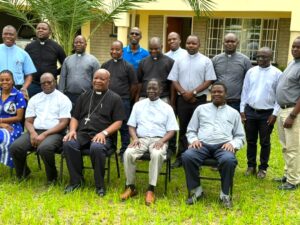SOUTH SUDAN: Pope Francis Intends to Bridge Reconciliation Gap in South Sudan, Says Apostolic Nuncio on the Upcoming Visit

Sr. Jecinter Antoinette Okoth, FSSA
As the people of South Sudan awaits for Pope Francis’ visit in three months’ time, the Apostolic Nuncio to the country has described the Holy Father’s gesture as a means by which he purposes to bridge the reconciliation gap that has existed in the country for years.
“Pope Francis is very serious about reconciliation for justice to prevail, and I think he intends to be that bridge between the opposing parties in South Sudan to bring people together,” Archbishop Bert van Megen said in an interview with AMECEA online Tuesday, March 29.
He narrates that since the beginning of his Pontificate in 2013, the Pope has always desired to visit South Sudan.
According to the Vatican diplomat, South Sudan has not yet experienced peace which they have yearned for over the years: “Reconciliation has not happened between the warrying parties,” he said.
“If you look at the peace agreement which should bring the parties together, the agreement has only been implemented partly and there is no much progress,” Archbishop van Megen said in reference to the Revitalized Agreement on the Resolution of Conflict in South Sudan (R-ARSS) that was signed in 2018 to provide a blueprint for a sustainable peace and democratic transition.
Recounting that in 2019 Pope Francis organized a retreat in Rome for the South Sudan leaders and eventually kissed their (Leaders) feet as a humble gesture pleading with them not to return to civil war, the Apostolic Nuncio noted that “the very symbolic gesture has very little effect till now.”
In a sense he said, “The Papal visit is a follow up on that same event of 2019 to show the people on the ground the need for reconciliation.”
Expounding further on Pope’s upcoming visit to South Sudan, Archbishop van Megen who doubles as the Nuncio in Kenya underscores that the Holy Father normally emphasizes in his preaching and teachings about “going to the peripheries.”
“South Sudan can be termed a country in the periphery and Pope Francis wants to be one with them and understand the reality of the people,” the Nuncio said during the Tuesday interview adding: “To get the real sense of things and to have better understanding, one needs to be physically present to see the people in eye, and to hear their stories.”
“We are human beings, and have body and mind. The senses are very important to get the real grasp of reality,” he narrates, affirming the need for the Holy Father to physically visit South Sudan.
He emphasized further that the Holy Father’s physical visit to the world’s youngest nation amidst his age has a message to the people saying: “The Pope is about 85 years and this could have been another consideration for him to visit the country for he is able to travel now and if he waits longer he will not be able to do this kind of travel.”
He added, “This is a challenge to his physical health as well but he is ready to do it and he is ready to sacrifice his health for this travel.”
Additionally, Archbishop van Megen explained, “there could be an inner voice, an urge, probably telling him to go to South Sudan so that as a Pope he shall have done everything he could to bring peace to the people of South Sudan.”
Besides Pope Francis, the Archbishop of Canterbury Justin Welby and the Moderator of Scotland Presbyterian Church will also be present during the visit in South Sudan a gesture which Archbishop van Megen says is a “real example of ecumenism in the Church.”
“South Sudan is not just for the Catholic Church but also a number of other churches who play an important role not only among the people but also at the level of government,” the Nuncio said and continued, “With the Pope and the other church leaders visiting, I think Christianity wants to come to South Sudan as a united front saying to the leaders of the country to be committed to serve the people.”
“As a church if we want to preach unity, cooperation and reconciliation then we need to be an example in our ecumenical effort,” The Pope’s representative said adding that “Concerted efforts of churches together in a way helps in creating a bond that forges a way forward for others.”
Addressing South Sudan leaders prior to the Pope’s visit, Apostolic Nuncio said during the Tuesday interview, “Authority that has been given to you by God should be at the service of the people. In any action you do and every word you say as a leader you have to ask yourself for whom you are doing it.”
“Authority is given to leaders to serve the people, to increase the common good and well-being of the people,” Archbishop van Megen said emphasizing that “if leaders are able to come together and put up a functional government that is able to provide services to the people, South Sudan will have a great future.”
He noted that the country has great Agriculture potential, with minerals and other resources which can make the country develop very quickly if South Sudanese themselves are also “able to overcome their tribal strives and differences and work together as a nation.”
The Pope’s representative in South Sudan acknowledged that both parties have “deep respect for the Holy Father, but there is need to turn that respect into action.”
“Let us keep hopeful that the Pope’s visit will contribute towards change in South Sudan and intensify our prayers,” Archbishop van Megen concluded.


